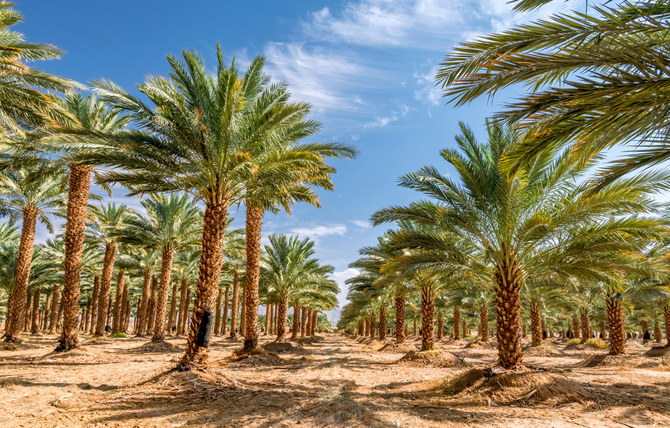
16 Jul 2024
RIYADH: Saudi Arabia’s food security is set to strengthen with five new investments in the agriculture sector of the Al-Baha region, aimed at achieving self-sufficiency under Vision 2030.
The Ministry of Environment, Water, and Agriculture announced these opportunities through its FURAS portal, as reported by the Saudi Press Agency. The projects include cultivating orchards, coffee, palm trees, and producing flowers and wild plants.
This comes as Saudi Arabia, despite about 90 percent of its territory being desert, is leading an agricultural boom aimed at boosting domestic crop production and reducing dependence on imported food.
The Kingdom has already achieved complete self-sufficiency in dates, fresh dairy products, and table eggs, according to the General Authority for Statistics’ Agricultural Statistics Publication.
The new investment opportunities feature a coffee city project aiming to cultivate more than 150,000 trees across an area exceeding 2.29 million sq. m., with a production capacity surpassing 15,000 tonnes.
The ministry has set a submission deadline of Sept. 10, with bid envelopes scheduled to be opened the following day.
Another initiative is the Al-Ennab Village project, situated near Al-Janabeen Dam, focusing on cultivating palm and fruit trees over an area of more than 4.6 million sq. m. The deadline for bids for this project is Sept. 24, with the envelopes scheduled to be opened the following day.
The Ministry of Environment, Water, and Agriculture emphasized the strategic importance of these projects in enhancing agricultural productivity and ensuring long-term food security for the Kingdom.
Meanwhile, the ministry said that the lavender fields project opportunity aims to plant over 2,500 lavender seedlings annually and set up a fence and shades made of agricultural mesh, mother fields, and irrigation networks in an area that will exceed 11,710 sq. meters.
The deadline for submitting bids is Sept. 2, and the envelopes will be opened on Sept. 3.
Additionally, there is a fruit nursery project in the Qilwah governorate aimed at cultivating 100,000 seedlings annually for all types of fruits, covering an area exceeding 33,370 sq. meters.
Moreover, a flower nursery project in the same district has been included among the investment opportunities. This initiative aims to produce 500,000 seedlings annually for various flowers and wild trees, covering an area exceeding 34,790 sq. meters.
Bids are scheduled to be submitted by the end of Sept. 3, with the envelopes set to be opened the following day.
MEWA announced the launch of the first Saudi AgriFood Tech Alliance earlier this month, with founding partners including the Research, Development, and Innovation Authority, King Abdullah University of Science and Technology, and Topian, NEOM’s food company.
According to the ministry, the alliance aims to provide a platform to unite and mobilize a complementary network of food and agriculture stakeholders, catalyzing the national-scale deployment of AgriFood technological solutions.
The alliance includes around 40 entities from the public and private sectors, research and academia, and nonprofit organizations.